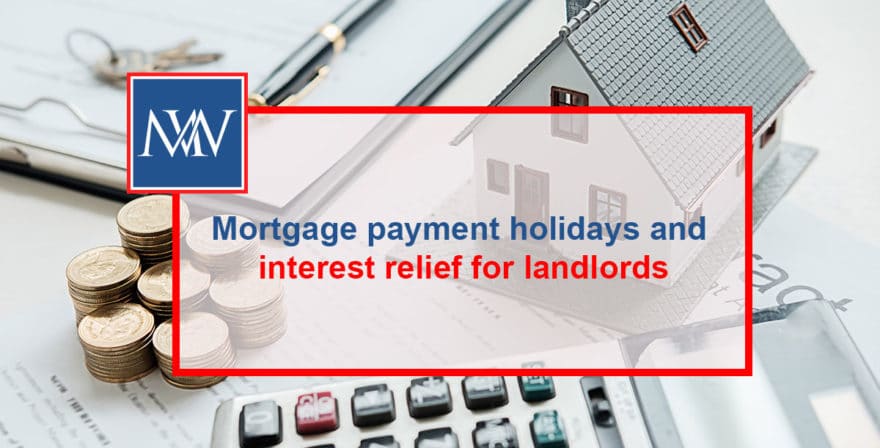
Mortgage payment holidays and interest relief for landlords
In March, the Government announced that homeowners struggling to pay their mortgages due to Coronavirus would be able to take a three-month mortgage payment holiday. They confirmed that this option would also be available to buy-to-let landlords, who may suffer cashflow difficulties if, as a result of the virus, their tenants were unable to meet their rent in full when it is due. In May, the Government announced that those struggling to pay their mortgages because of the impact of Coronavirus would be able to extent their mortgage payment holiday by up to three months.
Where a landlord opts to take a mortgage payment holiday, what impact does this have on tax relief for interest payments?
Interest continues to accrue
The first point to note is that interest continues to accrue during the period of the mortgage holiday, although the landlord will not be required to make any payments during this time. This is important and will impact on the timing of the associated interest relief, which will depend on whether accounts are prepared on a cash basis or on the accruals basis.
At the end of the holiday, the missed payments and interest may be recovered by extending the term of the mortgage or by making higher payments once payments restart.
Relief as a basic rate tax reduction
From 2020/21 onwards, tax relief for finance costs (such as mortgage interest) on residential properties is given only as a tax reduction at the basic rate. This means that 20% of the allowable finance costs are deducted from the tax that is due.
Impact of a mortgage holiday – Cash basis
Most landlords whose rental receipts are £150,000 a year or less will prepare the accounts for their property rental business under the cash basis. As expenditure under the cash basis is recognised when paid, if the landlord does not make a payment, there will be no relief for that expense until the payment is made.
Where the landlord takes a mortgage, no interest will be paid during the period of that holiday. As a result, a landlord may pay less in interest in 2020/21 than in 2019/20. The interest rate reduction is calculated by reference to the interest paid in the year.
Example
Kevin has a buy-to-let property on which he has buy-to-let mortgage, the interest on is £500 per month. As a result of the Covid-19 pandemic, his tenant struggles to pay his rent on time. Kevin takes a three-month mortgage payment holiday. To mortgage term is extended as a result.
In 2020/21, Kevin only makes nine mortgage payments instead of the usual 12, paying interest of £4,500 rather than £6,000. The tax reduction for 2020/21 is £900 (£4,500 @ 20%) rather than £1,200 (£6,000 @ 20%).
Impact of mortgage payment holiday – Accruals basis
Under the accruals basis relief is given for the period in which the expense arises rather than when payment is made. As interest continues to accrue throughout a mortgage holiday, the landlord will be able to claim the full tax reduction on the interest accruing in the 2020/21 tax year, even if the interest was not paid in full in the year because the landlord took advantage of a mortgage payment holiday. If, in the above example, Kevin prepared his accounts for 2020/21 on the accruals basis, he would be able to claim a tax reduction of £1,200 rather than £900.
For more information on Mortgage payment holidays and interest relief for landlords, Book a Free Consultation
Need Accountancy Support?
For information on bespoke training, or if you have any other questions for Makesworth Accountant, please fill in your details below




















 148
148